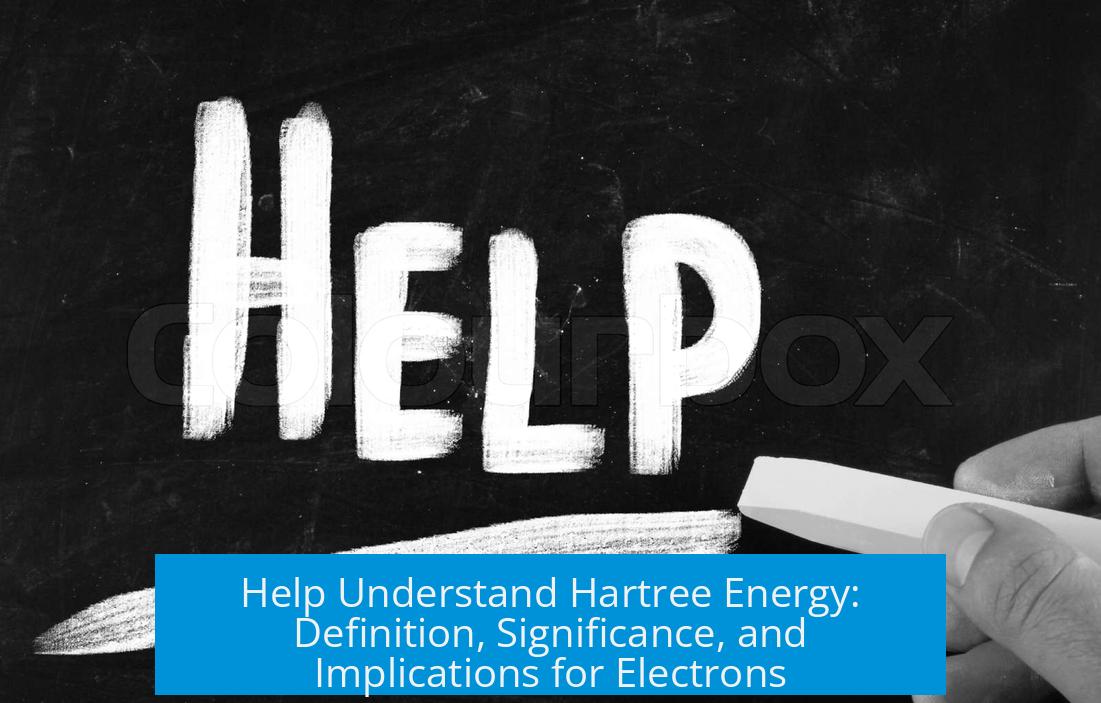Understanding Hartree Energy
Hartree energy is a unit of energy often used in atomic and molecular physics, defined as twice the ionization energy of a hydrogen atom. This means it measures energy on an atomic scale and serves as a standard unit like Joules or electronvolts (eV), but it is larger in magnitude. It helps express energies in quantum mechanics more naturally than conventional units.
Definition and Origin
The Hartree energy equals about 27.2 electronvolts (eV) and corresponds to the amount of energy to remove an electron from the ground state of a hydrogen atom, multiplied by two. Its use simplifies calculations in atomic models because it connects directly to fundamental atomic properties.
What Hartree Energy Means for an Electron in an Orbital
Hartree energy measures the electric potential energy of an electron within an atom. It is relative to a defined zero point.
- The zero reference corresponds to a free electron, not bound to any nucleus.
- Because of this, it is common for bound electrons to have negative Hartree energies.
Significance of Negative Hartree Energy
A negative Hartree energy indicates that energy must be added to the electron to free it from the nucleus. The electron is in a bound state, stabilized by the electrostatic attraction to the nucleus. This concept mirrors how electrons require energy input to overcome the attraction and become free.
Hartree Energy as a Relative Measure
Since electric potential is relative, the Hartree scale measures energy differences corresponding to the electron’s position relative to the zero-level defined by a free electron. This relativity allows meaningful comparisons of energy states within atoms and molecules.
| Aspect | Explanation |
|---|---|
| Unit | Energy equal to twice the ionization energy of hydrogen |
| Magnitude | ~27.2 eV |
| Reference Point | Free electron state (zero energy) |
| Sign of Energy | Negative for bound electrons, positive if free |
| Usefulness | Standardizes atomic energy calculations |
Key Takeaways
- Hartree energy is a fundamental atomic energy unit equaling twice hydrogen’s ionization energy.
- It serves as a relative measure with zero set at a free electron’s energy.
- Negative Hartree energy means the electron is bound and requires energy to escape.
- Hartree energy enables clear, consistent calculations in quantum atomic models.





Leave a Comment